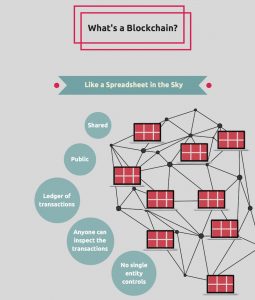SINGAPORE — When final-year students at Wheelock College in Singapore prepare for their stay on the home campus in Boston, in the U.S. state of Massachusetts, they get a list from the previous year’s seniors showing where to buy halal groceries, find kabob stalls and go to pray.

That list, says A’qilah Saiere, who made the trip in 2013, grows longer with each year, making it much easier for the college’s Muslim students to meet their food and prayer needs while away from home.
“A huge part of being a Muslim is to travel, to see the world and to appreciate its beauty,” the 22-year-old preschool teacher said. “Knowing that there are these options for you makes everything easier and more comfortable. You definitely feel more confident that when you travel, you don’t have to worry you’ll never find halal food.”
Muslim travelers are venturing beyond traditional Muslim destinations such as the United Arab Emirates, Malaysia and Indonesia. With many hailing from fast-growing economies, Muslims are becoming important consumers in global tourism. They make up an increasing percentage of holidaymakers in Singapore, Japan, South Korea and other nonreligious destinations.
That means demand is growing for halal food options, Muslim-friendly hotels, Shariah-compliant debit cards as well as prayer rooms everywhere from airports to theme parks.
Efforts to accommodate the Muslim traveler can also be seen in the virtual world. Websites recommend Muslim-friendly cities, hotels and restaurants. There are Muslim-centric smartphone apps and digital access to Shariah-compliant banking services.
“We have seen a recent huge shift toward more destinations targeting this sector, like Japan and Taiwan, and it is a trend we expect to continue,” said Fazal Bahardeen, CEO of the Singapore-based CrescentRating & HalalTrip.
A global index of Muslim-friendly holiday spots released in March shows Muslim tourists have a strong affinity for non-Islamic destinations.
The survey, compiled by CrescentRating and the global payments company MasterCard, is being touted as the most comprehensive research into Muslim tourism to date.
The survey, which compiled scores for 100 destinations, used criteria like family holiday suitability, the level of services and facilities provided, accommodation options, marketing initiatives as well as visitor arrivals. Each criterion was then weighted to make up an overall index score.
Malaysia took the top spot on the Organization of Islamic Cooperation’s destinations list. Turkey came in second, followed by the UAE, Saudi Arabia and Qatar.
Singapore ranked as the top non-Islamic destination for Muslim tourists, beating out Thailand, Hong Kong and Taiwan, as well as established tourist havens such as France, the U.S. and Britain.
The report also considered how Islamic practices — like females wearing traditional Islamic clothing, including head and facial coverings — are accepted. “Any resentment prevalent at the destination for such clothing is also taken into account,” the report notes.
The survey portrays the typical Muslim consumer as young, educated and with a large disposable income. It also paints leisure activities as one of the biggest markets within the Muslim consumer space.
In 2014, the segment was worth $145 billion, according to the report, with 108 million Muslim travelers representing 10% of the entire travel economy. The numbers are forecast to grow to $200 billion and 150 million visitors representing 11% of the market by 2020.
Muslim travel will continue to be one of global tourism’s fastest-growing subsectors, the report predicts.
“Not only is it the most in-depth research that we have undertaken so far on the fast-growing Muslim travel market,” Bahardeen said, “but it has provided all stakeholders with some invaluable insight into how the halal-friendly tourism sector is growing and developing from a global perspective.”
Bahardeen remembers walking into a Takashimaya department store in Tokyo a few weeks ago and finding a well-marked and spacious prayer room.
“You wouldn’t expect this four or five years ago in Tokyo,” he said. “I was amazed to find this in a department store.”
There are also more halal food options in Tokyo as Japan experiences a rise in Muslim tourist arrivals and Tokyo prepares to host the 2020 Olympics.
TFK Corporation, an airline caterer in Tokyo, is another example of how the travel industry is paying more attention to the growing Muslim market: It recently acquired certification for its halal kitchen. The company reportedly spent some 60 million yen ($500,000) to expand its Narita Airport premises and purchase new equipment to meet the growing demand for halal meals.
Meanwhile, Taipei Main Station earlier this year became the first public transportation hub in Taiwan to open a Muslim prayer room.
In Seoul, Incheon Airport offers prayer rooms that passengers can use before departure. In addition, the South Korean government recently announced it will publish an Arabic version of its official guidebook on halal restaurants in an effort to attract more Muslim tourists.
According to the State of the Global Islamic Economy 2013, by Thomson Reuters and DinarStandard, Muslim consumers globally spent just over $1 trillion on food and nonalcoholic beverages in 2012 — 16.6% of all such consumption. The figure is expected to grow to $1.6 trillion by 2018. According to the report, the global Muslim food and beverage market is larger than China’s, which is at $848 billion. The U.S. food and beverage market is worth $736 billion, Japan’s is $486 billion, and India’s is $376 billion.
Financial services companies like MasterCard and Visa are rushing out nonbanking debit cards as well as other products and services that comply with Sharia banking rules. The Tabung Haji Debit-i MasterCard allows Malaysian Muslims to use a globally accepted MasterCard debit card. Visa recently partnered with Al Rajhi Bank, the largest bank in the Kingdom of Saudi Arabia and the world’s largest Islamic bank, to support their debit, credit and prepaid business.
Estimates from Ernst & Young in a World Islamic Banking Competitiveness Report show international Islamic banking assets with commercial banks were set to exceed $778 billion in 2014, with huge growth projected for the sector.
Singapore’s Royal Plaza on Scotts is becoming known as a Muslim-friendly hotel. It features a Muslim prayer room and rooms with both a Bible and Koran. Its kitchen is halal-certified — including all-halal ingredients and the absence of pork, wine, even vinegar. While alcoholic beverages are available to patrons, glasses used for them are kept separated from other glasses at the dishwashing point.
Recipes are devised to avoid the use of balsamic vinegar, cooking wine, and other non-halal ingredients, said Darren Ong, the executive chef. Patrons are a mix of non-Muslims and Muslims, he said.
“Our restaurant works as a place for multiracial dining,” Ong said. “That’s why we are allowed to serve alcohol. All the food is certified halal.”
Source : http://asia.nikkei.com

:quality(70)/cloudfront-eu-central-1.images.arcpublishing.com/thenational/WC6UPQPLY5ECVKFOCP6WHWV3XU.jpg)

